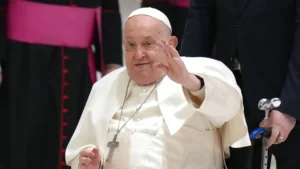As the nation awaits the Supreme Court’s verdict on the abrogation of Article 370 and the bifurcation of Jammu and Kashmir into two Union territories, Congress leader Ravinder Sharma expressed high expectations from the Apex Court. Sharma conveyed that people anticipate the Supreme Court to uphold the Constitution and the sentiments of the people.
Ravinder Sharma said, “All rights of the Jammu and Kashmir people, which were protected earlier regarding land and jobs, were taken away. The state was divided into two UTs. Elections have not been held for the last five and a half years. People demand early elections and restoration of statehood. We can only comment after the judgment comes. We respect the rule of law.”
The Constitution bench of the Supreme Court, comprising Chief Justice of India DY Chandrachud, and Justices Sanjay Kishan Kaul, Sanjiv Khanna, BR Gavai, and Surya Kant, is set to deliver the judgment today. The bench had reserved its judgment on September 5 after 16 days of hearing.
The central government, represented by Attorney General R Venkataramani and Solicitor General Tushar Mehta, defended the abrogation of Article 370, asserting that there was no “constitutional fraud” in repealing the provision that accorded special status to Jammu and Kashmir.
During the proceedings, senior advocate Kapil Sibal, representing the petitioners, argued that Article 370 had assumed permanence after the dissolution of the Constituent Assembly of Jammu and Kashmir. He contended that the Parliament could not have declared itself to be the legislature of J-K to facilitate the abrogation of Article 370.
The Central government maintained that after the changes, street violence in Jammu and Kashmir, previously orchestrated by terrorists and secessionist networks, has become a thing of the past. On August 5, 2019, the government announced the revocation of the special status of Jammu and Kashmir and its bifurcation into two Union territories. The impending Supreme Court judgment will play a pivotal role in shaping the future course of the region.






















